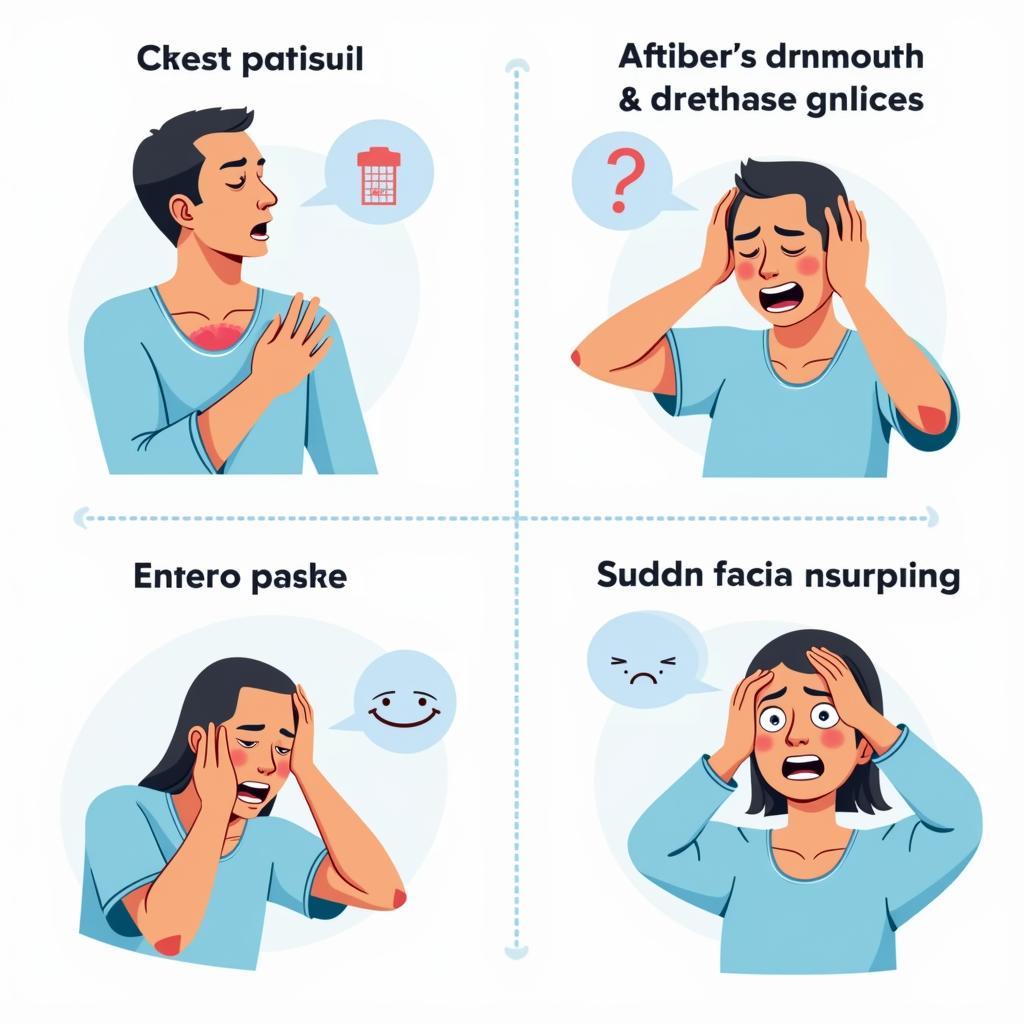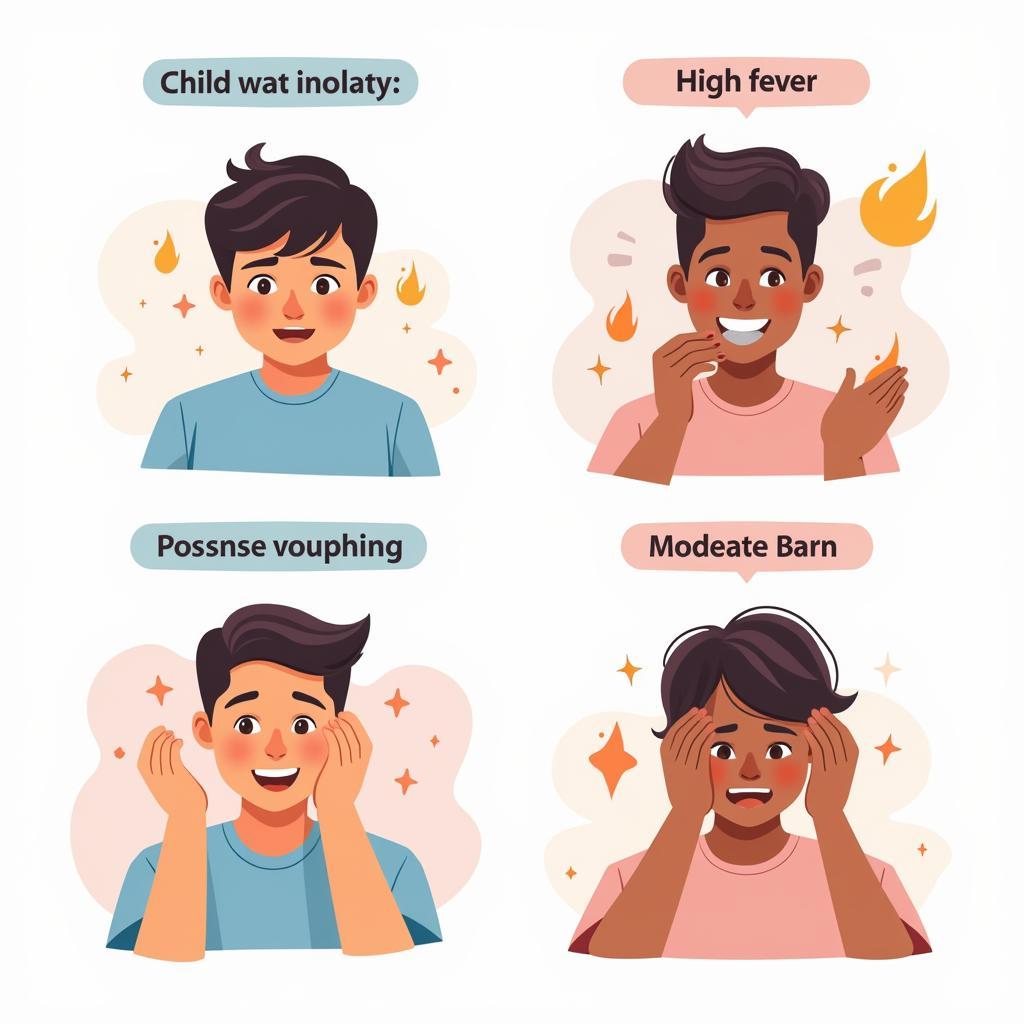Knowing when to Call A Hospital can be a difficult decision. This guide provides valuable information to help you determine the appropriate course of action for various medical situations, empowering you to make informed decisions regarding your health and well-being.
Understanding the Urgency: Is it Time to Call a Hospital?
Deciding whether a situation warrants a call to the hospital requires careful consideration. While some situations clearly demand immediate medical attention, others might be manageable at home or with a visit to an urgent care clinic. Understanding the difference can save you valuable time and resources. For non-emergency situations, exploring alternative options like telehealth consultations can provide convenient and timely medical advice. how to call a hospital room directly
Recognizing Emergency Situations
Certain symptoms require immediate action and a call to emergency services (typically 911 in the US). These include:
- Chest pain or discomfort: This could indicate a heart attack and requires immediate attention.
- Difficulty breathing or shortness of breath: This could be a sign of a serious respiratory issue.
- Sudden weakness or numbness in the face, arm, or leg: These symptoms, especially on one side of the body, could indicate a stroke.
- Loss of consciousness or fainting: This could be caused by a variety of serious medical conditions.
- Severe bleeding that won’t stop: Uncontrolled bleeding requires immediate medical intervention.
- Sudden severe headache: This could be a sign of a stroke or other serious neurological condition.
- Severe abdominal pain: This could indicate a serious problem requiring immediate surgery.
 Emergency Situations Requiring Hospital Call
Emergency Situations Requiring Hospital Call
Non-Emergency Situations Requiring Hospital Attention
Not all situations requiring hospital care are emergencies. Some conditions might not be life-threatening but still require prompt medical attention. These include:
- High fever that doesn’t respond to over-the-counter medication: While a fever itself isn’t always an emergency, a persistent high fever can be concerning.
- Unexplained and persistent vomiting or diarrhea: These symptoms can lead to dehydration and require medical evaluation.
- Moderate to severe burns: Burns, especially those covering a large area, require professional medical care.
- Deep cuts or wounds that require stitches: While minor cuts can be treated at home, deeper wounds need professional attention to prevent infection and ensure proper healing.
 Non-Emergency Situations Requiring Hospital Attention
Non-Emergency Situations Requiring Hospital Attention
When Should You Call a Hospital for General Information?
Calling a hospital for general information is appropriate in certain situations, such as inquiring about visiting hours, hospital policies, or the availability of specific services. However, it’s important to remember that hospital staff are primarily focused on patient care, so limit these calls to non-urgent matters. Check the hospital’s website for readily available information before calling. call light system for hospital
What Information Do You Need When Calling a Hospital?
When calling a hospital for an emergency, be prepared to provide the following information:
- Your name and phone number: This allows the operator to contact you back if necessary.
- The location of the emergency: Provide a clear and concise address.
- The nature of the emergency: Briefly describe the situation and the symptoms the person is experiencing.
- The age and gender of the person needing assistance: This helps medical professionals anticipate potential needs.
- Any known medical conditions or allergies: This information can be crucial for effective treatment.
hospital clothes for patients called
“In emergency situations, providing clear and accurate information to the hospital operator is vital for ensuring timely and appropriate medical response,” says Dr. Emily Carter, a board-certified emergency physician. “Knowing the patient’s age, medical history, and current symptoms can significantly impact the effectiveness of the initial treatment.”
Finding the Right Hospital
Choosing the right hospital is an important consideration. Factors to consider include the hospital’s specialization, proximity, and insurance coverage. callicoon ny hospital “Selecting a hospital that aligns with your specific medical needs and insurance coverage can contribute to a smoother and more efficient healthcare experience,” advises Dr. David Miller, a healthcare administrator with over 20 years of experience.
Conclusion
Knowing when to call a hospital is a critical skill that can significantly impact your health and well-being. By understanding the difference between emergency and non-emergency situations, being prepared with the necessary information, and choosing the right hospital, you can ensure you receive the appropriate care when needed. Remember, in case of a life-threatening emergency, always call 911 immediately.
When you need support, please contact us at Phone Number: 02437655121, Email: [email protected] Or visit us at: No. 298 Cau Dien Street, Minh Khai, Bac Tu Liem, Hanoi, Vietnam. We have a 24/7 customer service team.